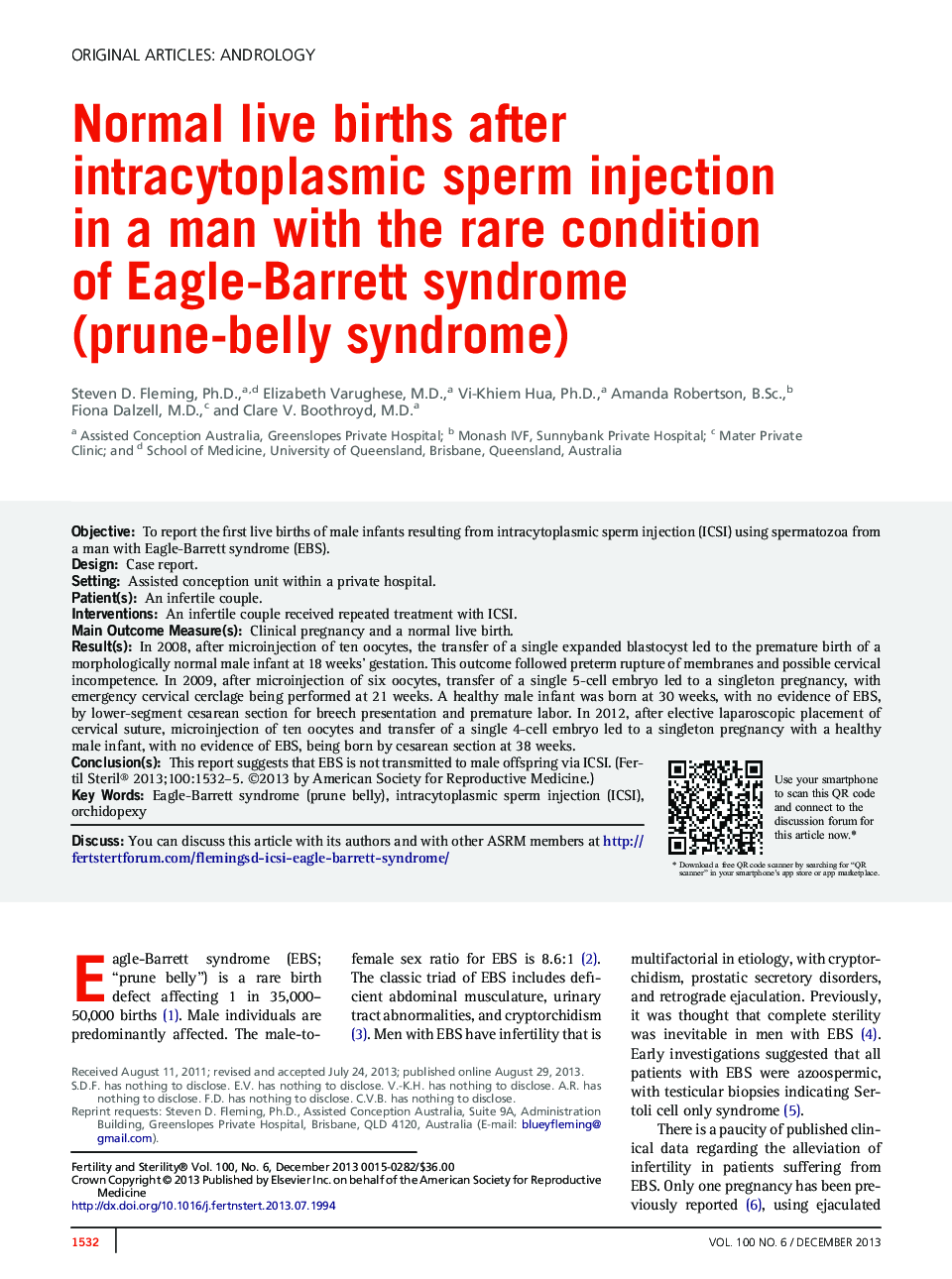| Article ID | Journal | Published Year | Pages | File Type |
|---|---|---|---|---|
| 3938544 | Fertility and Sterility | 2013 | 4 Pages |
ObjectiveTo report the first live births of male infants resulting from intracytoplasmic sperm injection (ICSI) using spermatozoa from a man with Eagle-Barrett syndrome (EBS).DesignCase report.SettingAssisted conception unit within a private hospital.Patient(s)An infertile couple.InterventionsAn infertile couple received repeated treatment with ICSI.Main Outcome Measure(s)Clinical pregnancy and a normal live birth.Result(s)In 2008, after microinjection of ten oocytes, the transfer of a single expanded blastocyst led to the premature birth of a morphologically normal male infant at 18 weeks' gestation. This outcome followed preterm rupture of membranes and possible cervical incompetence. In 2009, after microinjection of six oocytes, transfer of a single 5-cell embryo led to a singleton pregnancy, with emergency cervical cerclage being performed at 21 weeks. A healthy male infant was born at 30 weeks, with no evidence of EBS, by lower-segment cesarean section for breech presentation and premature labor. In 2012, after elective laparoscopic placement of cervical suture, microinjection of ten oocytes and transfer of a single 4-cell embryo led to a singleton pregnancy with a healthy male infant, with no evidence of EBS, being born by cesarean section at 38 weeks.Conclusion(s)This report suggests that EBS is not transmitted to male offspring via ICSI.
